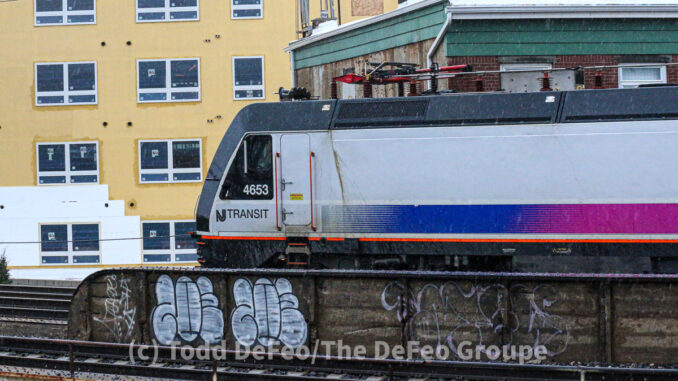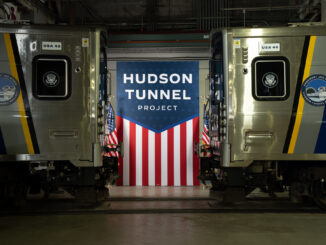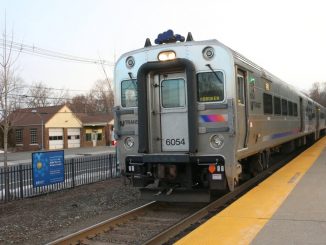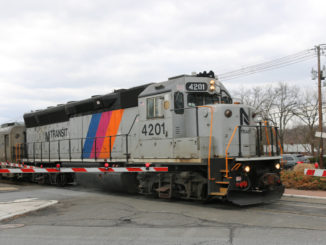
Hundreds of thousands of New Jersey commuters awoke Friday to learn that, at 12:01 a.m., NJ Transit engineers went on strike after five years without a new contract and a last-minute breakdown in negotiations Thursday.
New Jersey Assemblywoman Nancy Munoz said the situation should never have reached this point, and Garden State Republicans blame the governor.
“This isn’t just a bump in the road, like Governor [Phil] Murphy claimed, it’s a full-blown train wreck,” Munoz said in a release. “Time and again, when NJ Transit fails, it’s the riders who pay the price. Why is it that no matter the crisis, commuters are always the ones left holding the bag?”
Commuters endured “the summer of hell” in 2024 with constant delays and cancellations, especially along the Northeast Corridor, one of the busiest commuter rail lines in the country, due to equipment failures and aging infrastructure. At the same time, the transit agency instituted a 15% fare hike effective July 1, with 3% hikes following annually.
Meanwhile, according to Munoz, Murphy defended NJ Transit’s move into its leased $506 million headquarters at 2 Gateway Center, citing the corporation’s need for modern workspace. Republicans criticized the move, citing the administration’s lack of transparency, the fiscal irresponsibility — it would have cost less to update the existing headquarters, which NJ Transit owned — and the new headquarters’ ties to Onyx Equities LLC, a Woodbridge-based development firm co-founded by Jonathan Schultz and John Saraceno.
Schultz donated $12,300 and Saraceno donated $26,000 to Murphy’s campaigns between 2016 and 2022, records show. Murphy also has an office in one of the Gateway buildings.
“Yet commuters can tolerate rate hikes, cancellations and delays, on aging trains and rail lines, some of which haven’t been updated in decades,” Munoz said. “No one in this administration is looking out for the people who actually use this transit system.”
The strike affects the more than 350,000 commuters who rely on NJ Transit weekdays. They were encouraged to drive, telecommute, or use buses, light rail and PATH.
NJ Transit and the Brotherhood of Locomotive Engineers and Trainmen reached a tentative agreement back in March 2025 that would have increased the average engineer’s salary from about $135,000 to $172,000, retroactive to 2020 and effective through 2028. However, the majority of engineers rejected those terms, demanding wages on par with other regional transit workers.
“Governor Murphy says he’s been deeply involved in the negotiations between NJ Transit and its engineers,” Munoz said. “But where has he been the last five years? This contract dispute should have been taken care of his first term. Once again it’s the commuters who are suffering.”
In 2023, Senate Republican Leader Anthony M. Bucco similarly raised concerns about NJ Transit’s budget priorities, including their decision to move forward with a half-a-billion-dollar new corporate headquarters in Newark and how those choices could impact a future transit strike.
“Our commuters deserve safe and reliable service—now,” Bucco, R-Boonton, said in a statement. “The current NJ Transit strike is unacceptable, and I am calling on all parties to return to the negotiation table immediately. A swift and fair resolution must be reached that does not place the financial burden on the backs of our riders and taxpayers.”
Bucco emphasized that any resolution to the current labor dispute must strike a balance — treating workers fairly while protecting commuters from additional fare increases and businesses from higher taxes.
“New Jersey families rely on NJ Transit to get to work, school, and doctor’s appointments, so let’s get everyone back to the table and back to work—for the sake of our commuters and our economy,” Bucco said. “The Murphy administration and NJ Transit have had five years to settle this labor dispute, and their failure to do so is simply intolerable. NJ commuters deserve better.”
Should the National Mediation Board fail to bring the two sides to an agreement by Wednesday, Assemblyman Bob Auth said Murphy must intercede.
NJ Transit has told its 350,000 daily commuters it is working on contingency plans. These include limiting the system’s use to essential travel only and encouraging riders to telecommute if possible.




